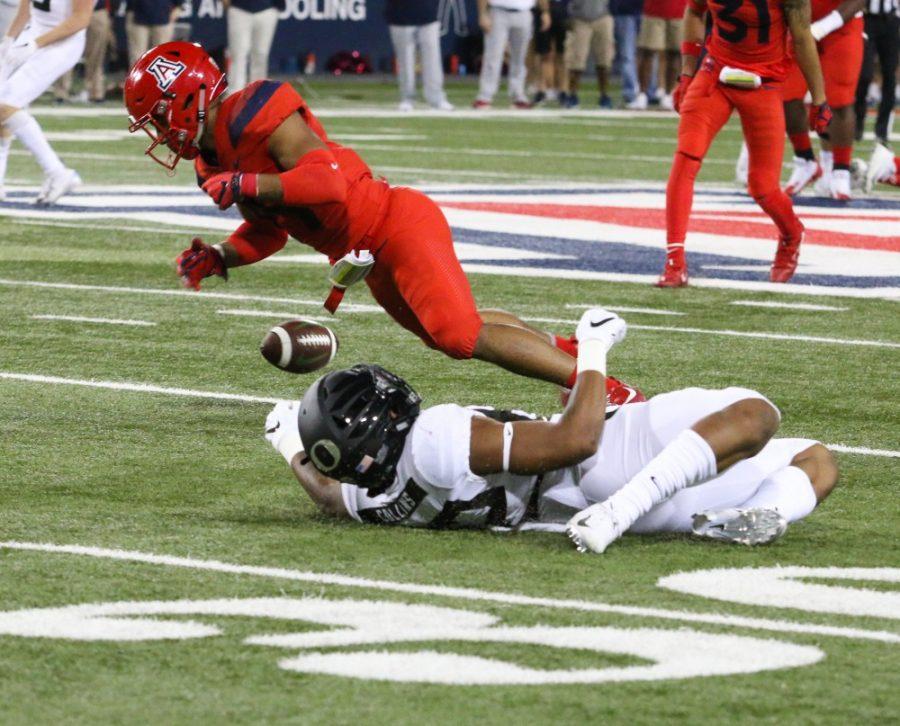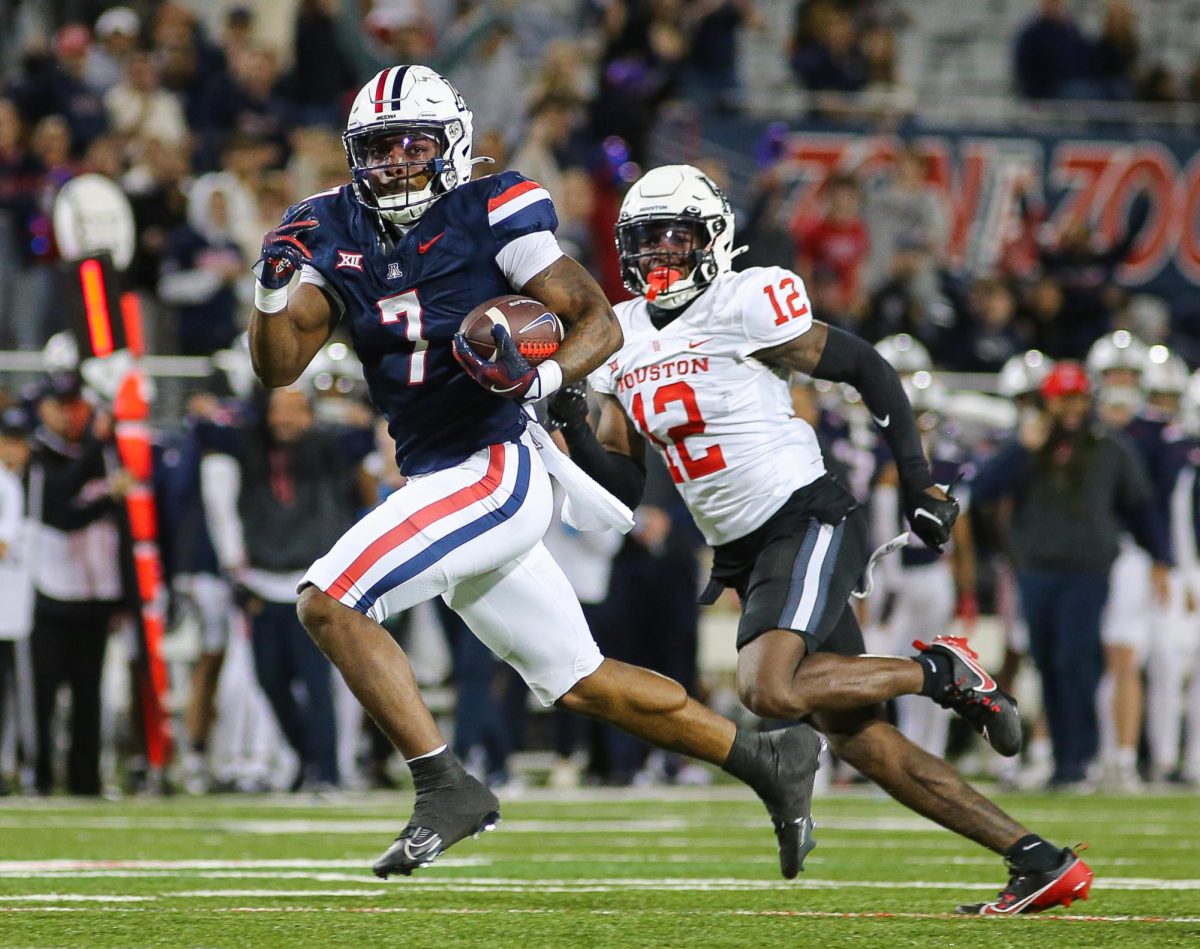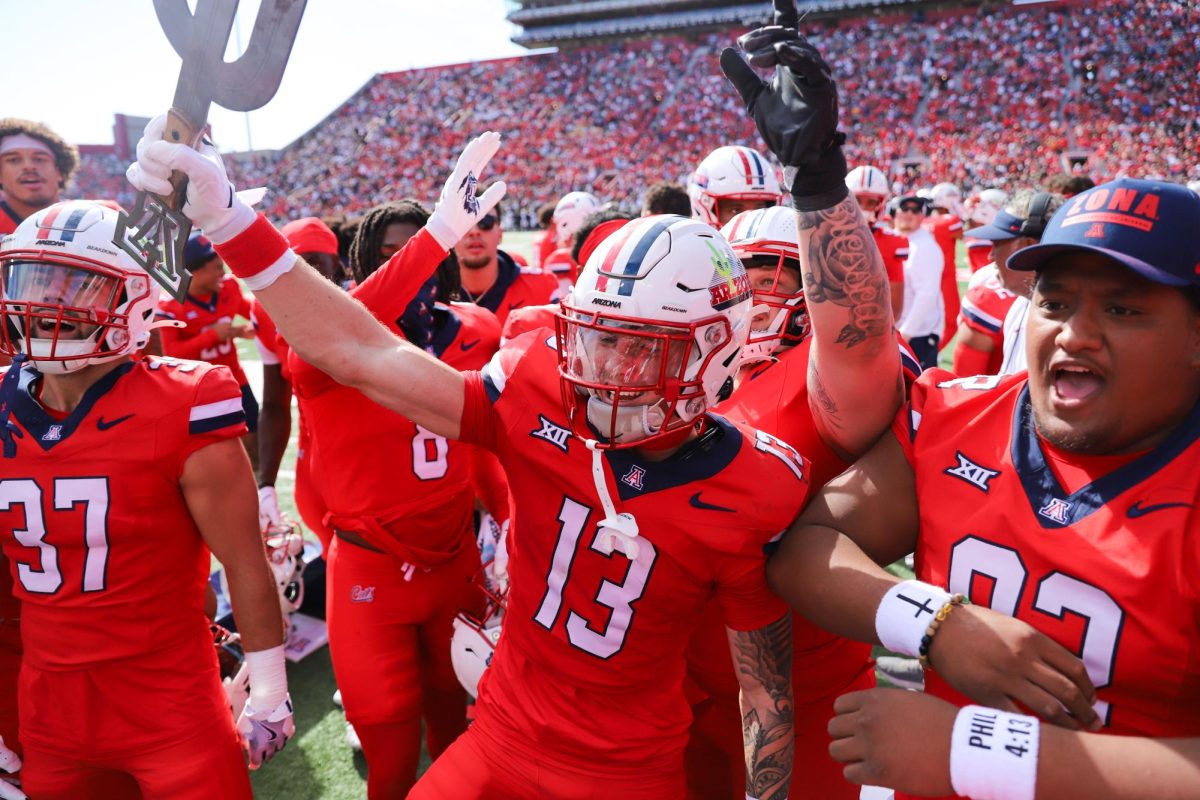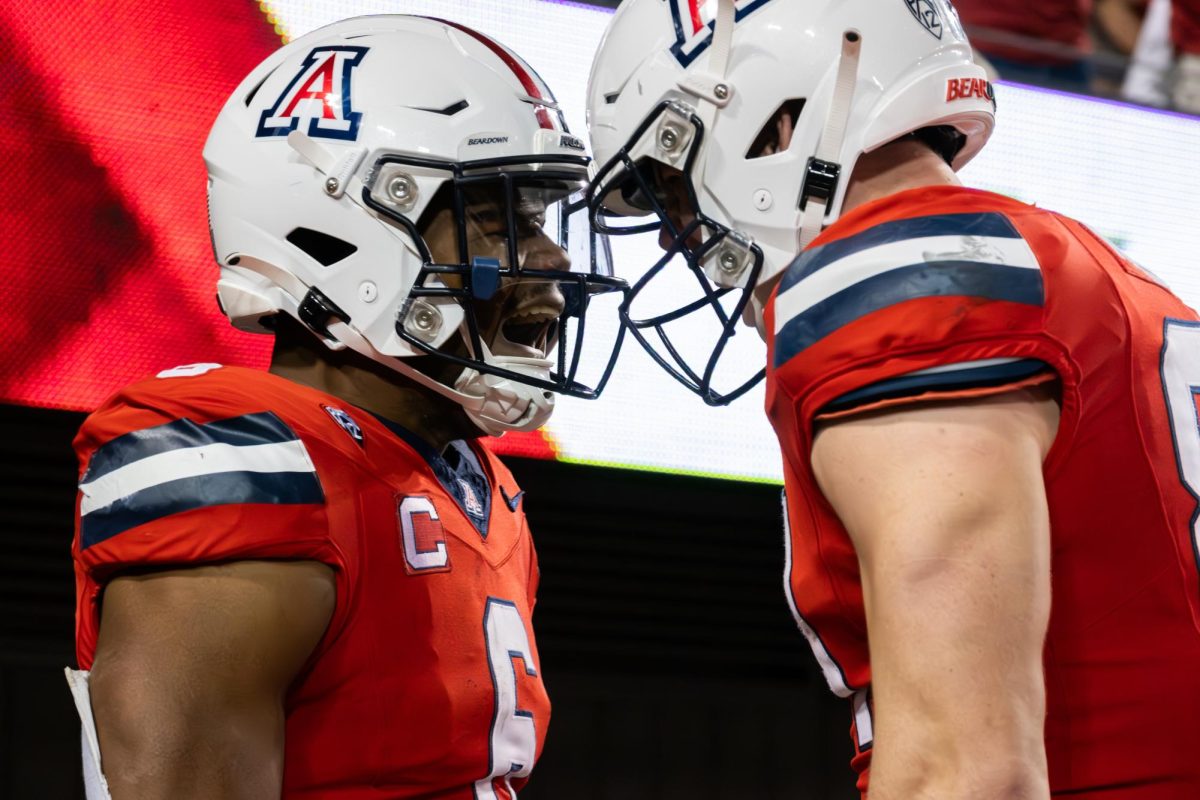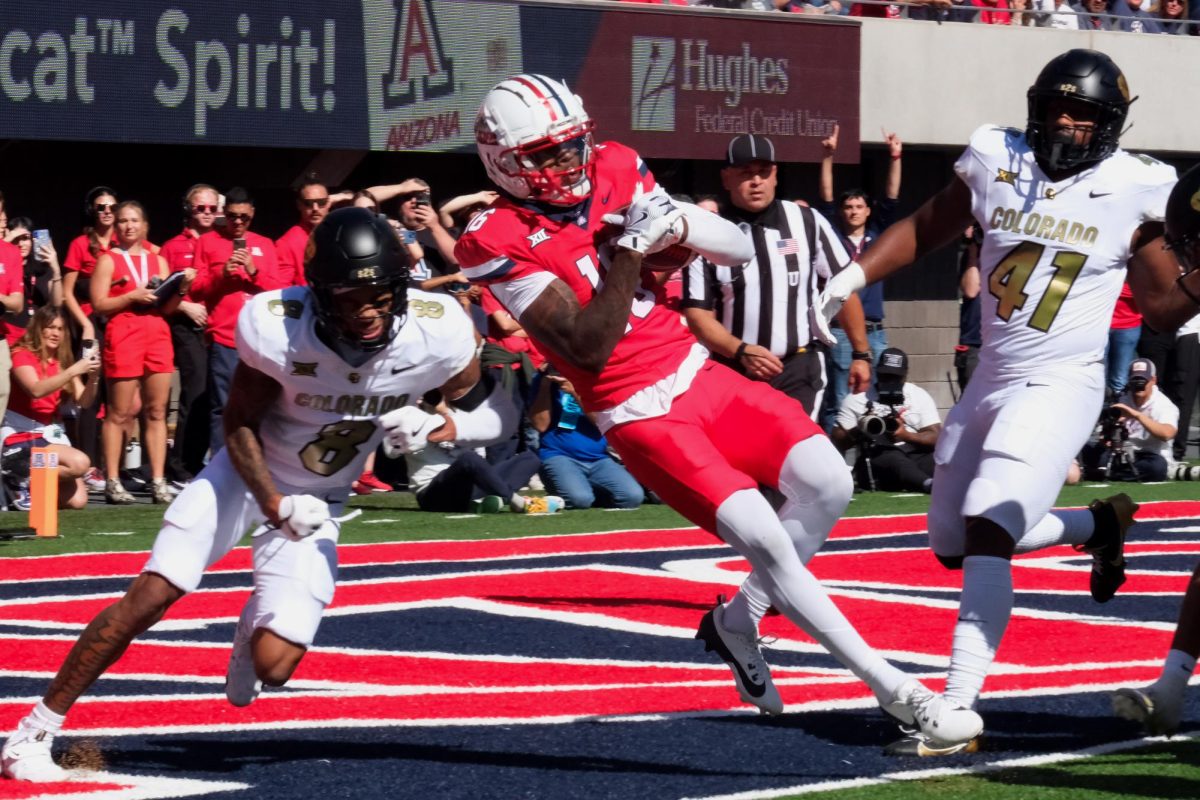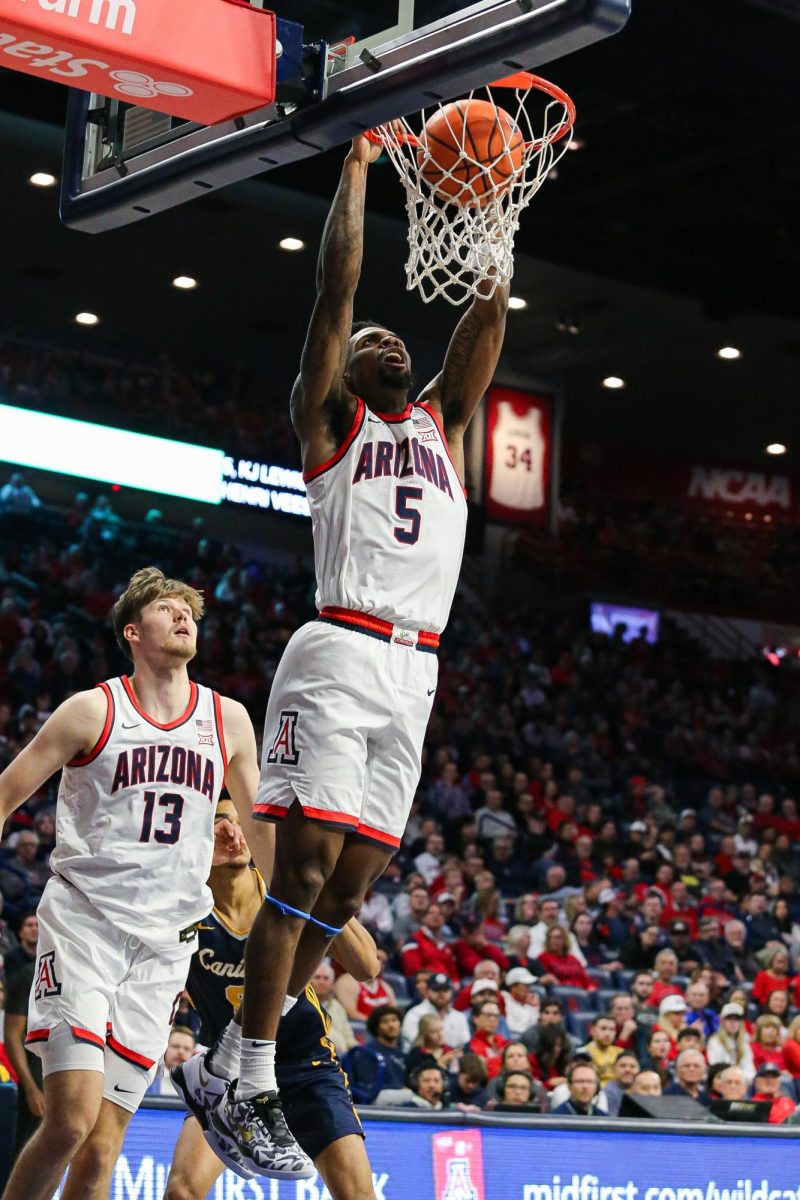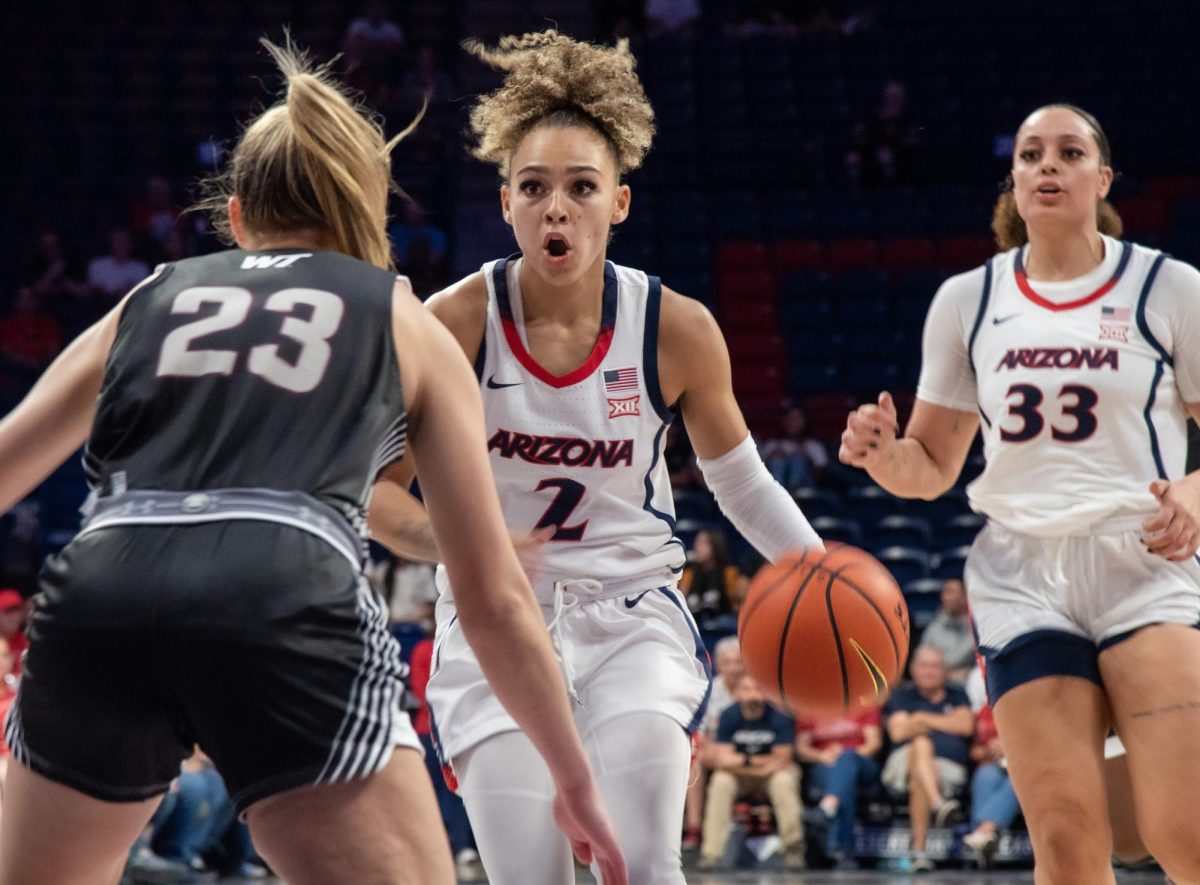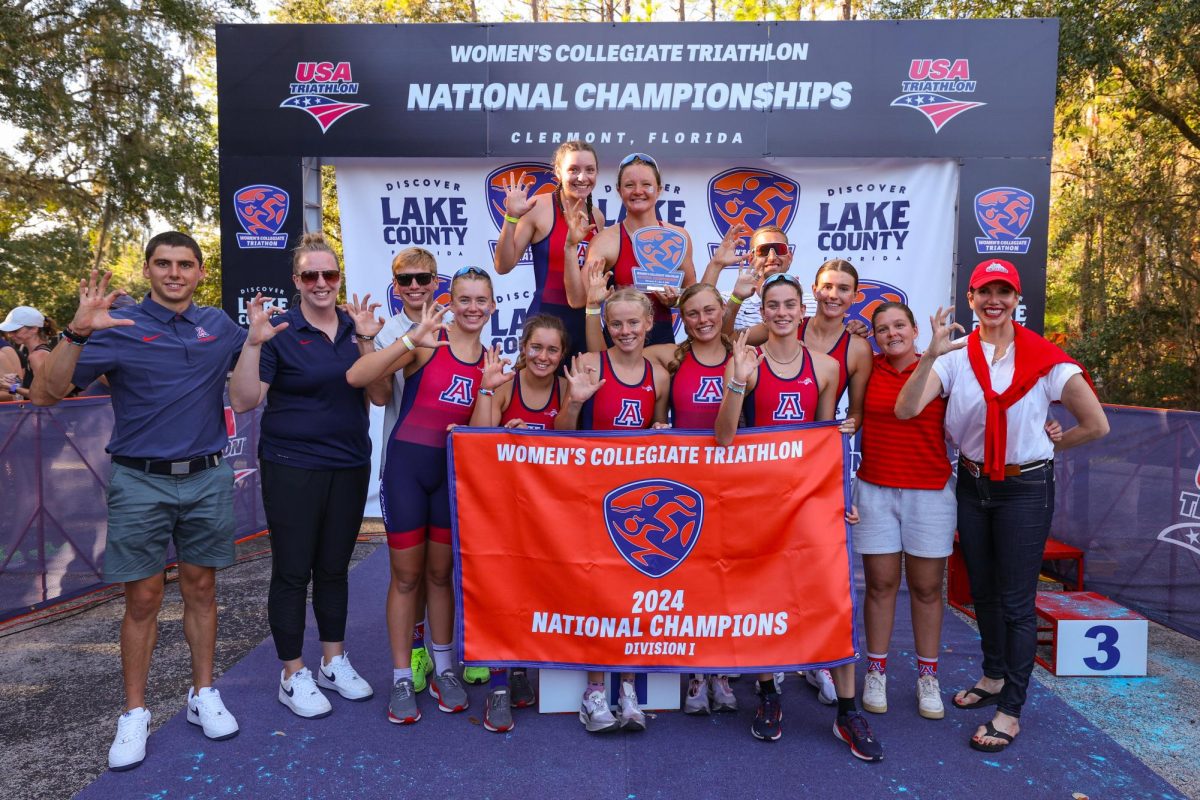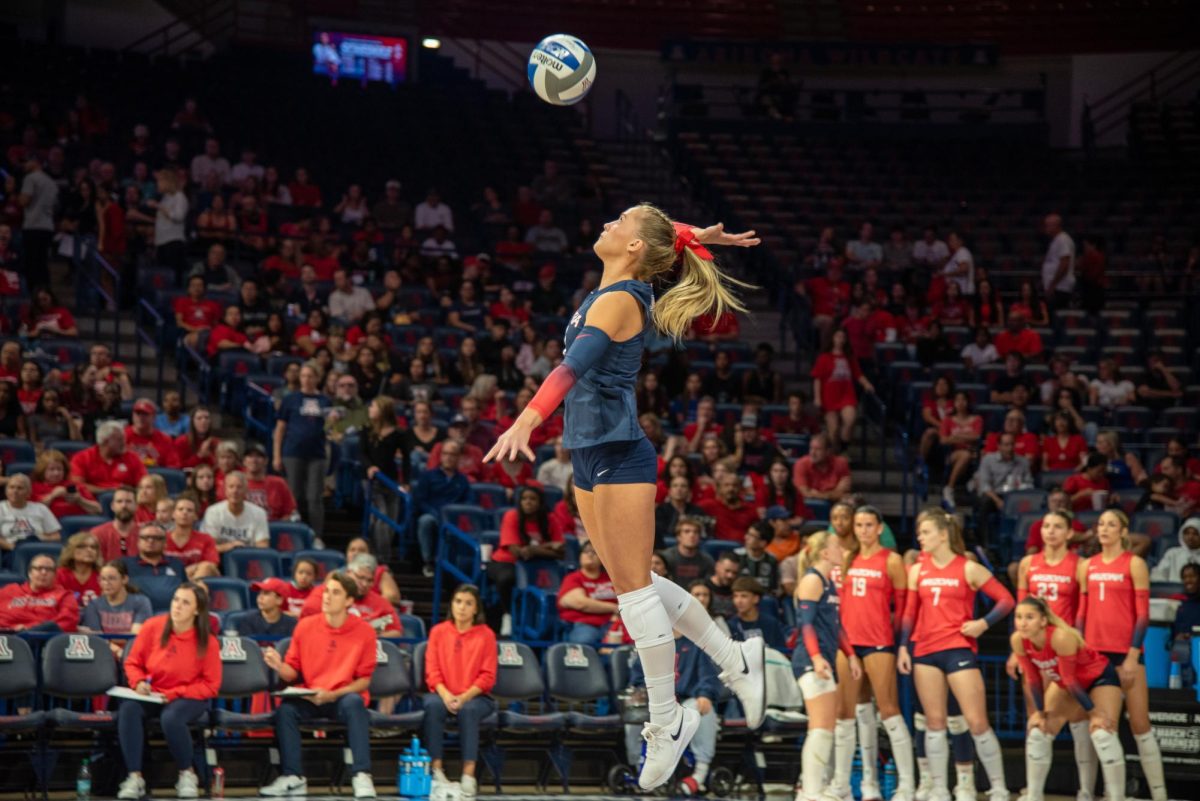There must have been something in the air on Saturday night. Football head coach Kevin Sumlin’s team put together its most efficient game of the year, upsetting the No. 19-ranked Oregon Ducks in blowout fashion, ending 44-15.
Arizona’s first-half performance set the tone against Oregon as the Wildcats entered the locker room with a 23-8 lead.
It didn’t take long for Arizona to get on the board, as quarterback Khalil Tate re-entered the starting line-up and orchestrated a seven-play, 75-yard scoring drive on the Wildcats’ first offensive series.
Arizona’s defense, however, was the true catalyst in the Wildcats’ eventful 44-15 victory on Homecoming night, and it was certainly a sight to behold.
Defensive coordinator Marcel Yates’ unit limited Oregon’s high-powered offense — led by potential first-round draft pick Justin Herbert — to just 124 total yards before the break.
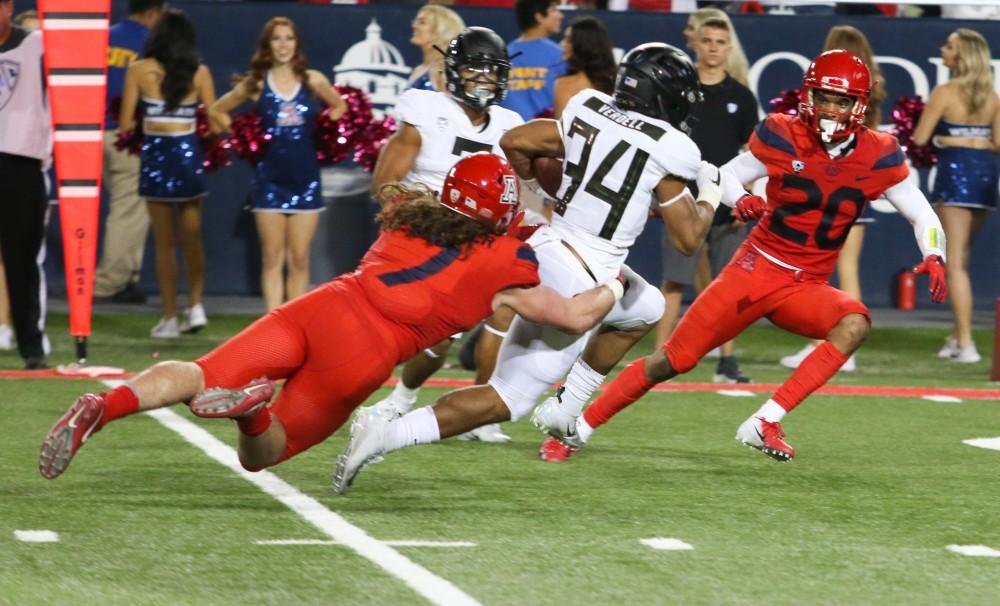
The Wildcats’ relentless defensive performance couldn’t have come at a more appropriate time, and, unlike previous games, it lasted the duration of the contest.
Entering Saturday night’s game, Arizona’s defense ranked near the bottom of the Pac-12 in several significant categories. A season chock-full of defensive mistakes didn’t appear to have any effect on the Wildcats this game, though. Instead of looking back, Arizona looked forward.
Colin Schooler and Demetrius Flannigan-Fowles ignited Arizona’s defense to help Tate and company get over the hump and collect the first notable win of the Sumlin era.
Arizona’s defensive leaders held their teammates to a new standard of sorts — routinely getting off the field on third down and forcing three pivotal turnovers — on their way to upsetting the highly favored Ducks.
In a game that many people expected to go in the complete opposite direction, it’s hard to ignore just how unlikely Arizona’s statement win really was.
On paper, Oregon was considered to be the more talented and better-coached team.
After last weekend’s crushing defeat to Washington State, the Ducks were primed to come out with a chip on their shoulder and spoil any and all hope for Arizona to reach bowl eligibility.
Sumlin’s squad had other ideas, though, and it involved exposing nearly all of the Ducks’ flaws.
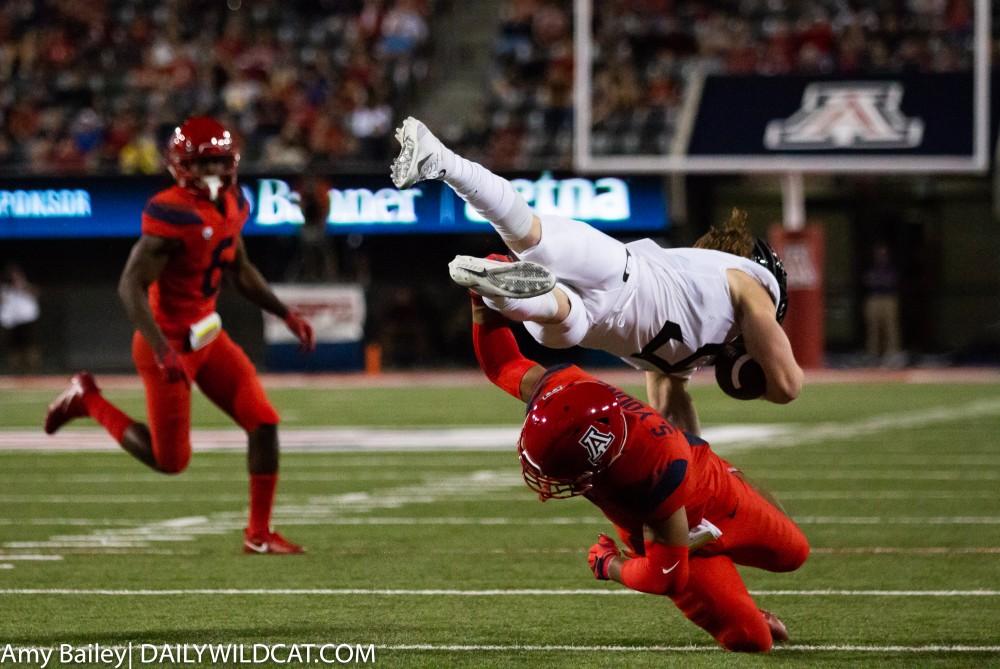
Arizona offensive coordinator Noel Mazzone was eager to dial up one deep-pass play after another — more often than not Tate had receivers open downfield — and as a result Oregon’s defense started to play back on their heels.
As the game progressed Arizona’s willingness to stretch the field opened up running lanes for running backs J.J. Taylor and Gary Brightwell.
Taylor capped off a monster, 212-yard night with a somersault into the end zone with less than five minutes to play.
Although there were still several occasions when the Wildcat rushing attack was put on the back burner, Arizona’s offense was productive enough in the passing game to maintain time of possession and wear the Ducks’ defense down.
In the first half alone, Arizona possessed the football for nearly twice as long as Oregon did. Thanks to terrific time management — and a clock-consuming 18-play, 88-yard drive in the second quarter — the Wildcats were able to keep Oregon’s offense on the sideline and out of rhythm.
Not that it would have mattered much.
When the Ducks were on the field there was typically little to no room to run. Despite fielding a noticeably larger offensive line with a talented group of ball carriers in the backfield, Oregon’s ground game was nearly non-existent.
The most telling signs of Arizona’s defensive improvements came in the form of applying pressure and staying in phase in coverage down the field.
Arizona’s defensive line regularly found itself in Herbert’s face, forcing the Ducks quarterback to make undesirable throws — one time luring him to take a shot outside of the pocket, only to be intercepted by safety Scottie Young Jr. who read Herbert’s eyes the entire way.

The most telling signs of Arizona’s defensive improvements came in the form of applying pressure and staying in phase in coverage down the field.
Arizona’s defensive line regularly found itself in Herbert’s face, forcing the Ducks quarterback to make undesirable throws — one time luring him to take a shot outside of the pocket, only to be intercepted by safety Scottie Young Jr. who read Herbert’s eyes the entire way.
The increased pressure provided Arizona’s offense with ample opportunities time and time again.
Oregon failed to keep drives alive, converting just three of 16 third downs and ultimately punting the ball back to the ‘Cats nine times.
In the first half a combination of turnovers, including a blocked punt, and Oregon’s inability to stay on the field allowed Arizona’s offense to connect on a trio of field goal attempts.
After exiting the locker room for the second time, Oregon’s offensive troubles led to a pair of third-quarter touchdowns for the Wildcats. Arizona’s margin of victory would only increase from there.
Tate made up for a handful of missed throws by completing the ones that were necessary to prevail. He also showed an excellent repertoire with receivers Shawn Poindexter and Shun Brown.
Tate’s production on the ground wasn’t convincing in terms of being 100 percent healthy, but it was clear that his teammates were thrilled to have him back in action.
Not many people envisioned Arizona playing lights out, in all three phases, for all four quarters, on Saturday night, but that’s what makes college football so great.
Sumlin’s team may have outplayed their expectations, but they likely didn’t play out of their mind. The Wildcats were simply firing on all cylinders — and it couldn’t have come at a better time.
Arizona is now just two wins shy of becoming bowl eligible. With an deal matchup versus Colorado at home, slated for next Friday night, it’s suddenly not impossible to imagine the Wildcats playing in December.
Perhaps the Territorial Cup will hold greater implications than its annual rivalry. Both teams could very well be fighting for their sixth win over Thanksgiving weekend.
Follow Rob Kleifield on Twitter



